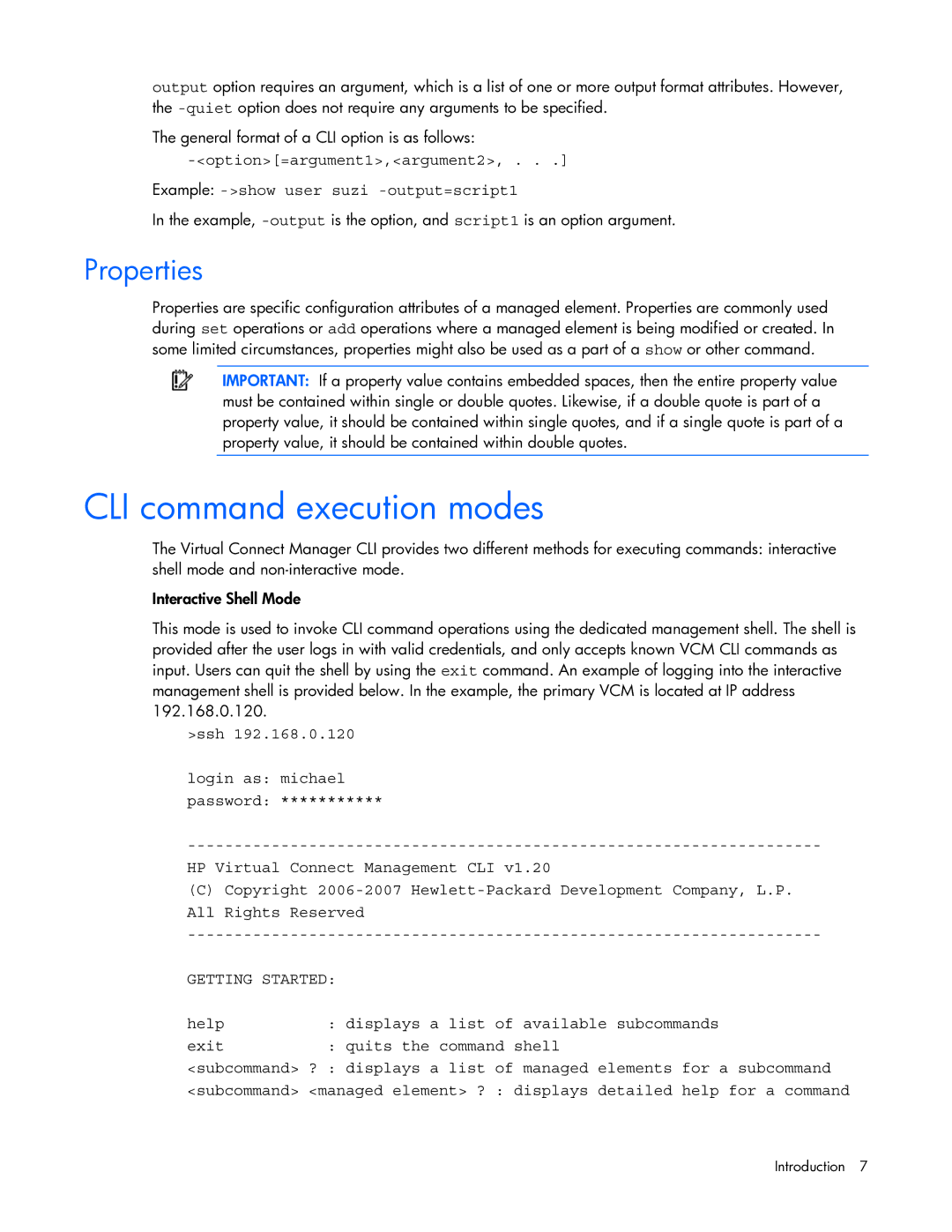
output option requires an argument, which is a list of one or more output format attributes. However, the
The general format of a CLI option is as follows:
Example:
In the example,
Properties
Properties are specific configuration attributes of a managed element. Properties are commonly used during set operations or add operations where a managed element is being modified or created. In some limited circumstances, properties might also be used as a part of a show or other command.
IMPORTANT: If a property value contains embedded spaces, then the entire property value must be contained within single or double quotes. Likewise, if a double quote is part of a property value, it should be contained within single quotes, and if a single quote is part of a property value, it should be contained within double quotes.
CLI command execution modes
The Virtual Connect Manager CLI provides two different methods for executing commands: interactive shell mode and
Interactive Shell Mode
This mode is used to invoke CLI command operations using the dedicated management shell. The shell is provided after the user logs in with valid credentials, and only accepts known VCM CLI commands as input. Users can quit the shell by using the exit command. An example of logging into the interactive management shell is provided below. In the example, the primary VCM is located at IP address 192.168.0.120.
>ssh 192.168.0.120
login as: michael
password: ***********
HP Virtual Connect Management CLI v1.20
(C)Copyright
GETTING STARTED:
help | : | displays a list of available subcommands |
exit | : | quits the command shell |
<subcommand> ? : | displays a list of managed elements for a subcommand | |
<subcommand> <managed element> ? : displays detailed help for a command
Introduction 7
